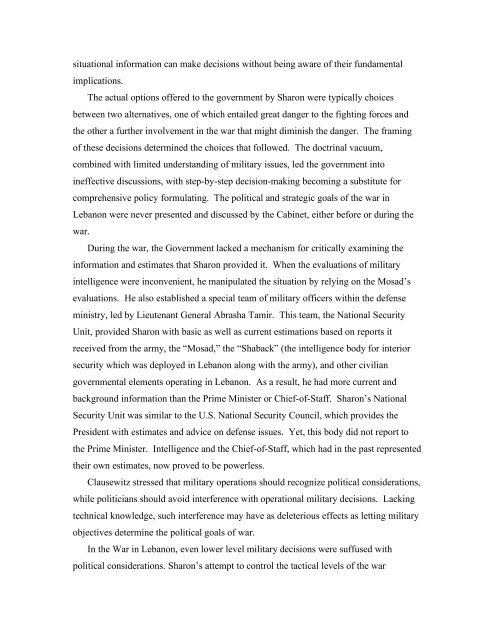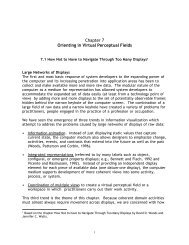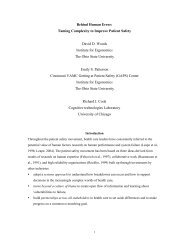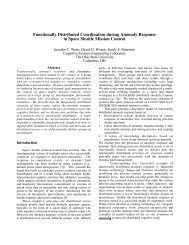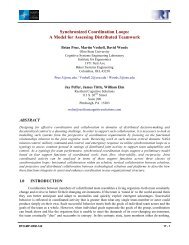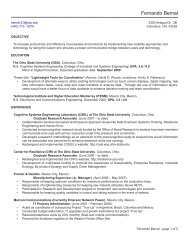Fundamental Surprises Zvi Lanir Decision Research 1201 Oak ...
Fundamental Surprises Zvi Lanir Decision Research 1201 Oak ...
Fundamental Surprises Zvi Lanir Decision Research 1201 Oak ...
- No tags were found...
Create successful ePaper yourself
Turn your PDF publications into a flip-book with our unique Google optimized e-Paper software.
situational information can make decisions without being aware of their fundamental<br />
implications.<br />
The actual options offered to the government by Sharon were typically choices<br />
between two alternatives, one of which entailed great danger to the fighting forces and<br />
the other a further involvement in the war that might diminish the danger. The framing<br />
of these decisions determined the choices that followed. The doctrinal vacuum,<br />
combined with limited understanding of military issues, led the government into<br />
ineffective discussions, with step-by-step decision-making becoming a substitute for<br />
comprehensive policy formulating. The political and strategic goals of the war in<br />
Lebanon were never presented and discussed by the Cabinet, either before or during the<br />
war.<br />
During the war, the Government lacked a mechanism for critically examining the<br />
information and estimates that Sharon provided it. When the evaluations of military<br />
intelligence were inconvenient, he manipulated the situation by relying on the Mosad’s<br />
evaluations. He also established a special team of military officers within the defense<br />
ministry, led by Lieutenant General Abrasha Tamir. This team, the National Security<br />
Unit, provided Sharon with basic as well as current estimations based on reports it<br />
received from the army, the “Mosad,” the “Shaback” (the intelligence body for interior<br />
security which was deployed in Lebanon along with the army), and other civilian<br />
governmental elements operating in Lebanon. As a result, he had more current and<br />
background information than the Prime Minister or Chief-of-Staff. Sharon’s National<br />
Security Unit was similar to the U.S. National Security Council, which provides the<br />
President with estimates and advice on defense issues. Yet, this body did not report to<br />
the Prime Minister. Intelligence and the Chief-of-Staff, which had in the past represented<br />
their own estimates, now proved to be powerless.<br />
Clausewitz stressed that military operations should recognize political considerations,<br />
while politicians should avoid interference with operational military decisions. Lacking<br />
technical knowledge, such interference may have as deleterious effects as letting military<br />
objectives determine the political goals of war.<br />
In the War in Lebanon, even lower level military decisions were suffused with<br />
political considerations. Sharon’s attempt to control the tactical levels of the war


